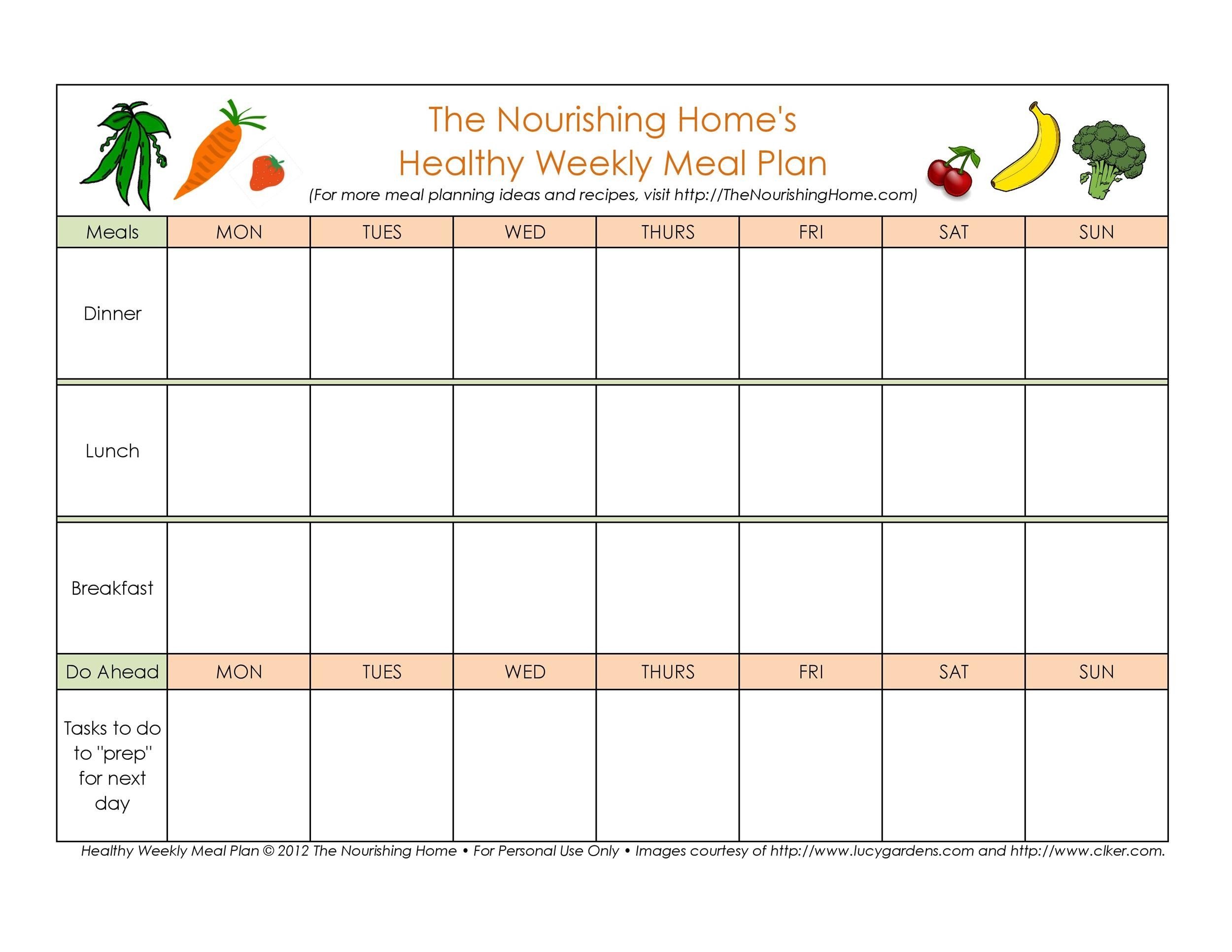Ensuring proper nutrition is crucial for the overall well-being and health of every family member. By implementing an
organized meal plan, families can develop healthy eating habits, promote optimal growth and development, and even
save time and money. This article explores the importance of family nutrition and provides practical tips for
effective meal planning.
The Importance of Family Nutrition
Good nutrition is vital for all ages, especially during childhood and adolescence when growth and development occur at
a rapid pace. A well-balanced diet helps provide essential nutrients, vitamins, and minerals necessary for overall
health and wellness. It promotes strong immune systems, supports brain function, boosts energy and concentration,
and helps prevent chronic diseases.
1. Promoting Healthy Eating Habits
Family nutrition plays a significant role in establishing healthy eating habits early on. When parents and caregivers
model good eating behaviors and provide nutritious food options, children are more likely to develop a preference
for healthy choices. By making nutritious foods accessible and enjoyable, families can shape their children’s
long-term eating habits and reduce the risk of developing unhealthy food relationships.
2. Supporting Growth and Development
Proper nutrition helps support optimal growth and development in children. Providing a variety of food groups,
including fruits, vegetables, whole grains, lean proteins, and dairy products, ensures that children receive all the
necessary nutrients to thrive. Adequate intake of calcium, iron, vitamin D, and other key nutrients is particularly
important during growth spurts. Well-nourished children tend to have healthier body weights and improved cognitive
performance.
3. Preventing Chronic Diseases
A well-balanced diet rich in fruits, vegetables, and whole grains helps reduce the risk of chronic diseases, such as
heart disease, obesity, and type 2 diabetes. By adopting healthy eating habits as a family, you can improve overall
health outcomes and reduce the chances of developing diet-related illnesses. Furthermore, involving children in meal
planning and preparation encourages a greater understanding of the importance of nutrition.
Tips for Effective Meal Planning
1. Plan Ahead and Create a Menu
Begin by creating a weekly menu that includes breakfast, lunch, dinner, and snacks. Involve family members in the
decision-making process to ensure everyone’s preferences are considered. Plan meals based on available ingredients,
sales, and seasonal produce. This will help streamline grocery shopping and reduce food waste.
2. Utilize Nutrient-Dense Ingredients
Opt for nutrient-dense ingredients to maximize the nutritional value of meals. Incorporate plenty of fruits,
vegetables, whole grains, lean proteins, and healthy fats into your menu. Experiment with different recipes and
cooking methods to make meals more enjoyable and diverse.
3. Prepare Meals in Advance
To save time during busy weekdays, prepare meals in advance. Cook larger batches and freeze individual portions for
easy reheating. Pre-cut fruits and vegetables for quick snacks or use them as ingredients in salads and stir-fries.
Investing in meal prep containers can help keep portions organized and ready to go.
4. Involve Children in Meal Preparation
Encourage children to participate in meal planning and preparation. Let them choose a new recipe to try or assist in
chopping vegetables and setting the table. This involvement can foster a sense of responsibility and appreciation for
healthy food choices.
5. Be Mindful of Portion Sizes
Pay attention to portion sizes to avoid overeating. Using smaller plates, bowls, and glasses can help visually
control serving sizes. Engage in mindful eating practices, such as eating slowly and savoring each bite, to prevent
mindless overconsumption.
6. Stock Up on Healthy Snacks
Keep a variety of healthy snacks readily available. Stock the pantry with items like nuts, seeds, whole grain
crackers, dried fruits, and yogurt. Avoid purchasing sugary and processed snacks to minimize unhealthy choices.
7. Stay Hydrated
Encourage family members to stay hydrated by drinking plenty of water throughout the day. Limit sugary beverages,
such as soda and fruit juices, as they contribute to empty calories. Offer flavored water or infuse it with fruits
for a refreshing twist.
Conclusion
Family nutrition and meal planning are pivotal for fostering healthy eating habits, supporting growth and
development, and preventing chronic diseases. By prioritizing nutritious meals and involving family members in the
process, you can ensure the well-being of your loved ones while creating a positive food environment. Start your
journey towards healthier eating habits today!


